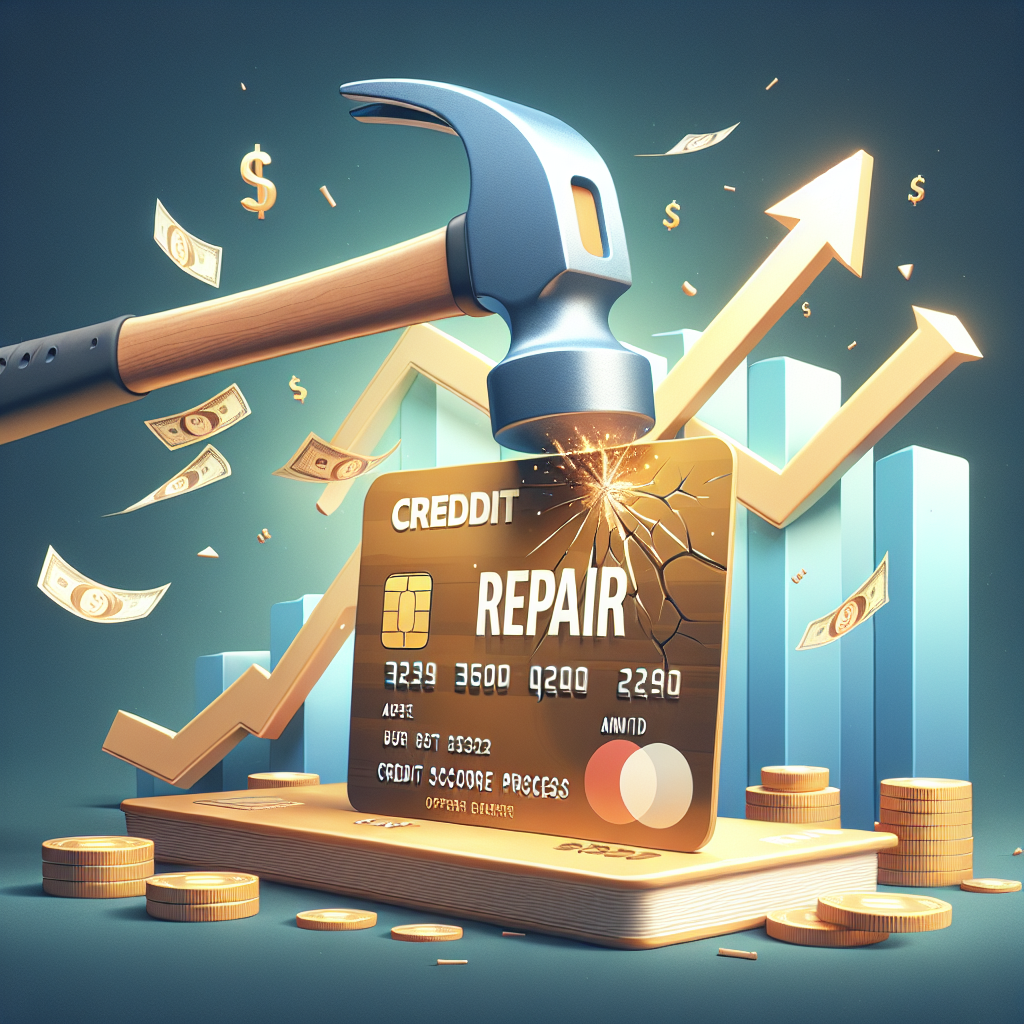Improving your credit score is crucial for financial well-being, and understanding the credit repair process can make it less daunting. This article dives into what you can expect during this process, breaking it down into various stages that will help you navigate through it with confidence.
Understanding Credit Repair: What Is It?
Credit repair refers to the process of addressing and correcting inaccuracies on your credit report. This can involve disputing errors with credit bureaus, negotiating with creditors, and implementing strategies to improve your creditworthiness. Whether you’re aiming to buy a home, secure a loan, or get a credit card, working on your credit can open doors to better financial opportunities.
The First Step: Reviewing Your Credit Report
Assessing Your Current Credit Situation
Before you begin the credit repair process, you must first obtain and review your credit reports from the three major credit bureaus: Experian, Equifax, and TransUnion. You’re entitled to one free report per year from each bureau through AnnualCreditReport.com.
Look for any inaccuracies such as:
- Misspelled names
- Incorrect account balances
- Accounts that don’t belong to you
- Late payments that were paid on time
By identifying these errors, you can take informed steps to correct them.
Disputing Errors: The Process Explained
Filing Disputes with Credit Bureaus
Once you identify errors on your credit report, the next step is disputing them. Credit bureaus typically allow you to file a dispute online, via mail, or over the phone. Here’s what to expect:
- Gather Documentation: Compile any supporting documents that prove your claim.
- Submit Your Dispute: Use the online forms provided by the credit bureaus or send your dispute via certified mail.
- Investigation Timeframe: Credit bureaus usually have 30 days to investigate your dispute. They will review the information and contact the creditor if necessary.
What Happens Next?
Once the investigation is complete, the credit bureau will inform you of the results and provide an updated credit report if changes were made. If your dispute is successful, you may see an improvement in your credit score.
Working With Creditors: Negotiating for Better Outcomes
Communicating with Creditors
In addition to disputing errors with credit bureaus, you may also need to negotiate directly with creditors. This typically involves:
- Pay-for-Deletion Agreements: You can ask creditors or collection agencies to remove negative information in exchange for payment.
- Setting Up Payment Plans: If you have outstanding debts, working out a payment plan can prevent further negative impacts on your credit score.
Importance of Written Agreements
Always ensure that any agreements you reach are documented in writing. This protects your interests and provides proof if any disputes arise later.
Improving Your Credit Score: Strategies for Long-Term Success
Building Positive Credit Habits
Beyond correcting errors and negotiating with creditors, developing good credit habits is essential for long-term credit score improvement. Here are some strategies:
- Timely Payments: Always aim to make your payments by the due date.
- Credit Utilization: Keep your credit utilization ratio below 30% by not maxing out your credit cards.
- Diversifying Credit: Mix different types of credit accounts, such as installment loans and credit cards, to show that you can manage various forms of credit responsibly.
Monitoring Your Progress
Regularly monitoring your credit score and reports is vital in ensuring your efforts are paying off. Tools like credit monitoring services can alert you to changes in your credit report, helping you stay proactive.
The Role of Credit Repair Services: When to Seek Help
Considering Professional Assistance
If the credit repair process seems overwhelming, you might decide to hire a credit repair service. These companies specialize in dispute filing and credit improvement strategies. When considering this option, look out for:
- Reputation: Research reviews and testimonials to assess their effectiveness.
- Transparency: A good credit repair service will clearly outline their fees and services.
Understanding the Costs
While credit repair services can be beneficial, it’s essential to understand the costs involved. Some may charge a monthly fee, while others charge on a per-deletion basis, so be sure to weigh the benefits against the costs.
Patience is Key: Understanding the Timeline
How Long Will It Take?
The credit repair process is not instantaneous. Depending on the number of disputes and the complexity of your situation, it can take anywhere from a few months to over a year to see significant improvements in your credit score. Patience and diligence are vital.
Conclusion: Take Control of Your Financial Future
The credit repair process can be an empowering journey towards financial freedom, offering you the chance to reshape your financial future. By understanding what to expect at each stage, from reviewing your credit report to negotiating with creditors and building positive habits, you can take the necessary steps to improve your credit score. Whether you choose to tackle your credit repair independently or seek professional guidance, know that rebuilding your credit is entirely achievable. Start today, and enjoy the benefits of better credit tomorrow!

